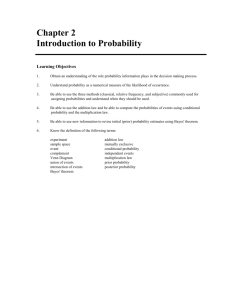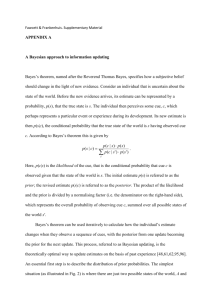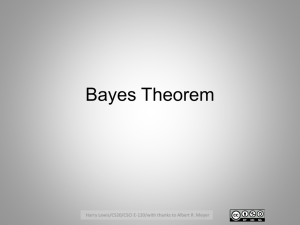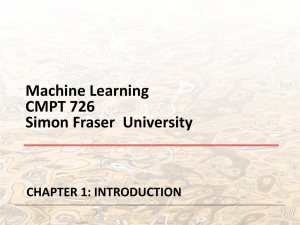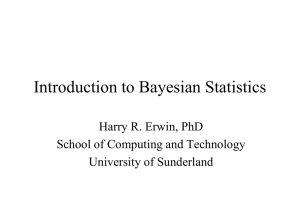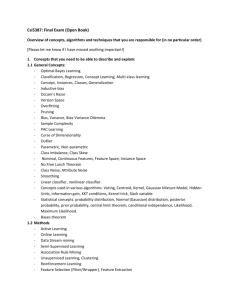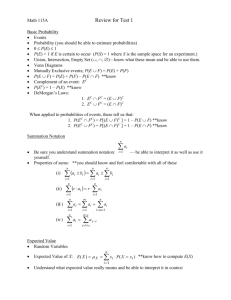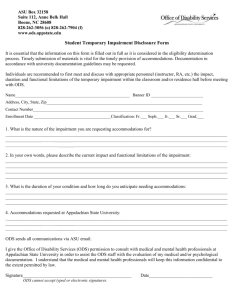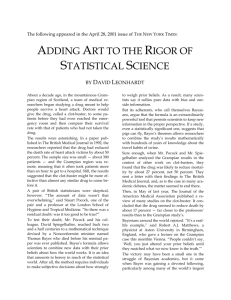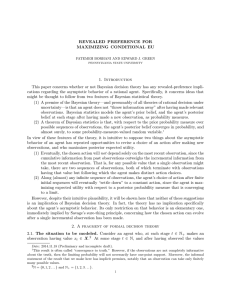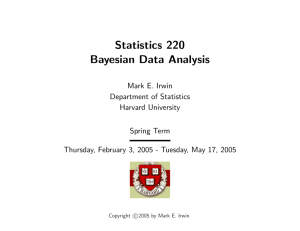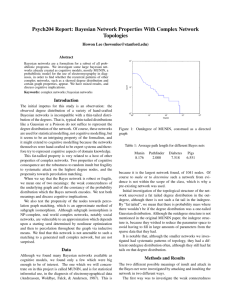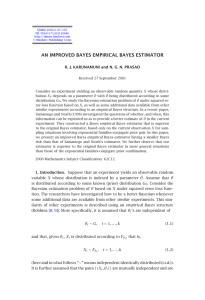Stat 561 Statistical Inference I
advertisement
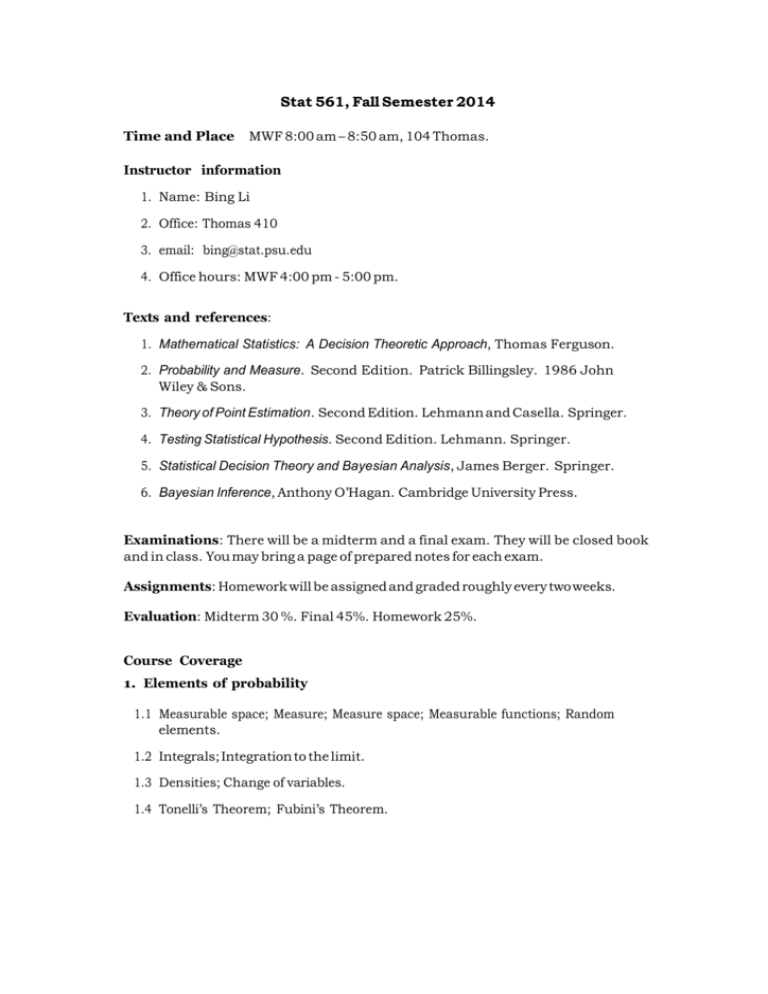
Stat 561, Fall Semester 2014 Time and Place MWF 8:00 am – 8:50 am, 104 Thomas. Instructor information 1. Name: Bing Li 2. Office: Thomas 410 3. email: bing@stat.psu.edu 4. Office hours: MWF 4:00 pm - 5:00 pm. Texts and references: 1. Mathematical Statistics: A Decision Theoretic Approach, Thomas Ferguson. 2. Probability and Measure. Second Edition. Patrick Billingsley. 1986 John Wiley & Sons. 3. Theory of Point Estimation. Second Edition. Lehmann and Casella. Springer. 4. Testing Statistical Hypothesis. Second Edition. Lehmann. Springer. 5. Statistical Decision Theory and Bayesian Analysis, James Berger. Springer. 6. Bayesian Inference, Anthony O’Hagan. Cambridge University Press. Examinations: There will be a midterm and a final exam. They will be closed book and in class. You may bring a page of prepared notes for each exam. Assignments: Homework will be assigned and graded roughly every two weeks. Evaluation: Midterm 30 %. Final 45%. Homework 25%. Course Coverage 1. Elements of probability 1.1 Measurable space; Measure; Measure space; Measurable functions; Random elements. 1.2 Integrals; Integration to the limit. 1.3 Densities; Change of variables. 1.4 Tonelli’s Theorem; Fubini’s Theorem. 1.5 Radon-Nikodym Theorem; Conditional expectation; Conditional probability. 1.6 Some inequalities. 2. Classical theory of estimation 3.1 Families of distributions; dominated family; homogeneous family; exponential family. 3.2 Sufficient, complete, and ancillary statistics with respect to a family of distributions. 3.3 Unbiased estimators and Cramer-Rao lower bound. 3.4 Optimal unbiased estimators. 3.5 Information. 3. Hypotheses test (Ferguson, Chapter 5) 3.1 Simple vs simple test: Two types of errors; The Neyman-Pearson Lemma. 3.2 One sided test: Size and power; Monotone likelihood ratio; The uniformly most powerful (UMP) test. 3.3 Two sided test: One parameter exponential family; Generalized NeymanPearson Lemma; Uniform maximization of power under two constraints; Uniform most powerful test (UMPU) when the null set is an interval; UMPU test when the null set is a point; UMP test when alternative set is an interval. 3.4 Test of one parameter in the presence of several: Exponential families with several parameters; Similar test; Uniformly most powerful similar test (UMPS); Sufficiency, bounded completeness, and Neyman structure; UMPU test with nuisance parameters; One sided and two sided cases; Testing linear functions for of natural parameters. 3.5 A special technique for constructing UMPU test in the presence of nuisance parameters: invariant family of distributions under a group of transformations; ancillary; Basu’s theorem; Constructing UMPU test using Basu’s theorem. 3.6 Converting an optimal test to an optimal confidence set. 4. Bayesian Analysis (Berger, Chapter 4) 4.1 Basic concepts: Prior; Likelihood; Posterior; Bayesian sufficiency. 4.2 Calculation of posterior: Conjugate families; Conditional conjugacy; improper priors; invariance of priors. 4.3 Bayesian decision theory: risk; posterior expected loss; Bayes risk; Bayes rule; Generalized Bayes rule. 4.4 Bayesian inference: Bayes rules for estimation, hypothesis test, and classification. Bayes rules and unbiasedness. 4.5 Stein’s phenomenon: Stein’s lemma, inadmissibility of MLE, James-Stein estimator. 4.6 Empirical Bayes Analysis: large number of parameters; factorization assumption; estimation of hyperparameters. Derive James-Stein estimator as empirical Bayes estimator. —————————————————————————————————————– Penn State welcomes students with disabilities into the University’s educational programs. If you have a disability-related need for reasonable academic adjustments in this course, contact the Office for Disability Services (ODS) at 814-863-1807 (V/TTY). For further information regarding ODS, please visit the Office for Disability Services Web site at http://equity.psu.edu/ods/. In order to receive consideration for course accommodations, you must contact ODS and provide documentation (see the documentation guidelines at http://equity.psu.edu/ ods/guidelines/documentation-guidelines ). If the documentation supports the need for academic adjustments, ODS will provide a letter identifying appropriate academic adjustments. Please share this letter and discuss the adjustments with your instructor as early in the course as possible. You must contact ODS and request academic adjustment letters at the beginning of each semester
